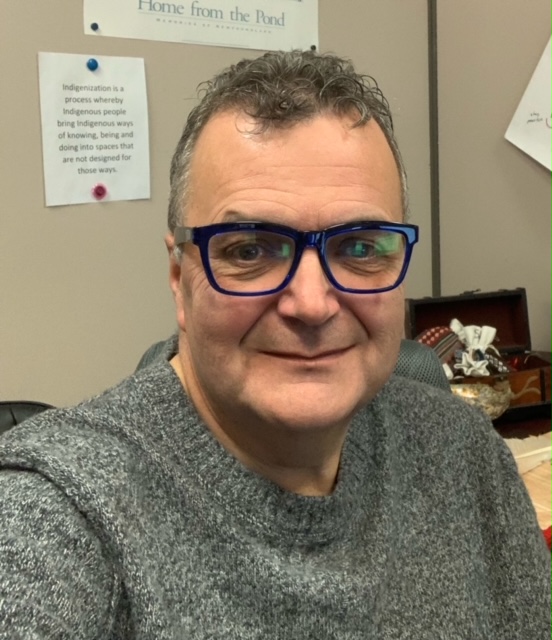September 30 marks the National Day for Truth and Reconciliation. It is day that honours the children who never returned home and the survivors and former students as well as their families and communities. Both the National Day for Truth and Reconciliation and Orange Shirt Day take place on September 30. Orange Shirt Day is an Indigenous led, grassroots, commemorative day that grew out of Phylllis Webstad’s account of losing her new orange shirt on her first day at residential school.
From 1831 to 1996, over 130 federally funded, church-run residential schools were attended by more than 150,000 Indigenous children. The goal, as Canada’s first Prime Minister, John A. Macdonald, so succinctly put it, was to “take the Indian out of the child,” or forced assimilation. It was a cultural genocide that has reverberated through generations of Indigenous Peoples through intergenerational trauma.
Newfoundland and Labrador had five residential schools that were administered by the Government of Newfoundland, and operated by the International Grenfell Association and the Moravian Mission. Canada’s role was to provide funding to the province to be used for educational needs of Indigenous students in Labrador.
Newfoundland and Labrador was left out of the 2008 apology by then Prime Minister Stephen Harper. However, after a class action lawsuit settlement hearing in 2016, Prime Minister Justin Trudeau traveled to Happy Valley-Goose Bay on November 24, 2017, to deliver an apology on behalf of the federal government. An excerpt from his apology includes, “To the survivors who experienced the indignity of abuse, neglect, hardship and discrimination by the individuals, institutions and system entrusted with your care, we are truly sorry for what you have endured. We are sorry for the lack of understanding of Indigenous societies and cultures that led to Indigenous children being sent away from their homes, families and communities and placed into residential schools. We are sorry for the misguided belief that Indigenous children could only be properly provided for, cared for, or educated if they were separated from the influence of their families, traditions, and cultures.”
As part of the journey of Reconciliation, the Diocese of Eastern NL, under the leadership of Bishop Sam Rose, has appointed a Lay Canon in the office of Indigenous Ministries and Advocacy in the Cathedral Chapter. As someone who is proudly Indigenous and also an active member of the Anglican Church, I am grateful that our bishop, has created this role and has chosen me to be in this role. It is my role to work with the diocese and our congregations as we journey to reconciliation.
Bishop Sam makes it clear in his ministry and episcopacy that rebuilding and deepening relationships with Indigenous peoples is a priority for him and the diocese. In the rebuilding and repairing, it is the intent that Indigenous spirituality in whatever form, is not in addition to the worship or liturgy, but an integral part of the worship and liturgy.
June is identified as National Indigenous History Month in Canada, a time to recognize the rich history, heritage, resilience and diversity of First Nations, Metis and Inuit. National Indigenous Day takes place on the summer solstice, June 21. It is a day set aside to learn more about the rich and diverse cultures, the various voices, experiences, and histories of First Nations, Metis, and Inuit. Learning about and with Indigenous peoples, places, and experiences is a step forward on the path to reconciliation.
Well-known American poet and civil rights activist Maya Angelou said, “Do the best you can until you know better, and once you know better, you do better.” How could we begin to do better? You could, build right and reciprocal relationships with Indigenous peoples and organizations. You could take time to familiarize yourselves with the 94 Calls to Action from the Truth and Reconciliation Commission, and you could use your voice. Often marginalized people have limited or no voice. Add your voices to theirs. Use your inherent privilege to build a more fair and equitable community.
Reconciliation by definition is an ongoing process through which Indigenous Peoples and settlers work together, cooperatively, to establish and maintain a healthy relationship.
As the national church, dioceses, and parishes continue to find ways to rebuild and deepen relationships with Indigenous peoples and organizations, there will be opportunities for everyone be active participants on the journey.
Mark’s Gospel tells us “and you shall love the Lord your God with all your heart and with all your soul and with all your mind and with all your strength. The second is this: ‘You shall love your neighbour as yourself.’ There is no other commandment greater than these.” Wherever you are on the journey to reconciliation, remember: if it is not about love, it is not about God. Because, with God, it is all about love.




